MercoPress. South Atlantic News Agency
Tag: economy
-
Thursday, February 28th 2019 - 09:10 UTC
China's manufacturing activity shrinks for a third straight month in February

China's manufacturing activity shrank for a third straight month in February, sinking to its worst performance in three years as the economy slows and the US trade war bites, official data showed on Thursday. The Purchasing Managers' Index (PMI), a gauge of factory conditions, came in at 49.2 for the month, down from 49.5 in January, according to the National Bureau of Statistics (NBS).
-
Wednesday, February 27th 2019 - 09:27 UTC
Orthodox, US trained economist, Campos Neto confirmed as Brazilian central bank governor
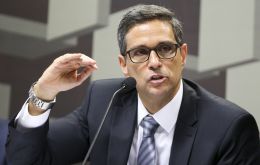
Brazil's Senate-confirmed Roberto Campos Neto as central bank governor on Tuesday, after he stressed that controlling inflation and reining in public spending were critical to supporting economic growth.
-
Monday, February 25th 2019 - 08:27 UTC
Apocalyptic scenario for Brazil if pensions' reform is not approved, warns Economy ministry
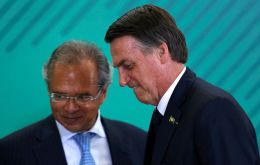
Brazil’s Economy Ministry warned that the economy will slip into recession next year and official interest rates could more than double unless Congress approves measures to reduce the deficit in the country’s pension system.
-
Wednesday, February 20th 2019 - 10:01 UTC
Europe's biggest bank slower profits blamed on tepid growth in China and UK

HSBC warned it may have to delay some investments this year as Europe's biggest bank missed 2018 profit forecasts due to slowing growth in its two home markets of China and Britain. HSBC reported a drop in fourth-quarter revenue amid tumbling stock markets that sapped customer's confidence in investing.
-
Thursday, February 14th 2019 - 09:13 UTC
UK January inflation at at two-year low and below target

British annual inflation hit a two-year low point in January, undershooting the Bank of England’s 2.0 per cent target on falling oil and other energy costs, official data showed on Wednesday.
-
Wednesday, February 13th 2019 - 09:41 UTC
Stable low inflation and expansion forecasted by Brazilian financial market
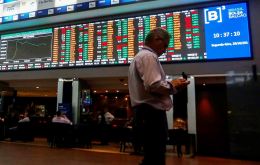
Brazil's financial market has cut its forecast of the country's inflation rate from 3.94 to 3.87 percent for 2019 and kept the rate at 4% for 2020, the Central Bank of Brazil reported. According to the Focus survey conducted by the bank among Brazil's main financial institutions, the forecasts are within the official target of 4.25 percent, with a tolerance margin between 2.75 percent and 5.75 percent.
-
Wednesday, February 13th 2019 - 07:41 UTC
Hot and dry weather impacts on Brazil's 2018/19 soybean crop
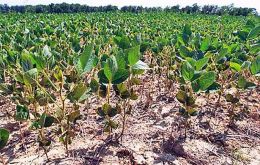
The Brazilian 2018-19 soybean crop will fall to 115.34 million tons, as the effects of hot and dry weather in December and January are gradually taken into account, national crop agency Conab said on Tuesday.
-
Tuesday, February 12th 2019 - 10:27 UTC
UK economy recorded last year the lowest growth since 2012, 1.4%
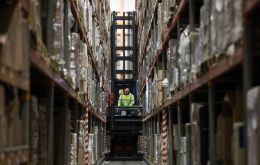
Britain's economy contracted in December, official figures revealed on Monday, suggesting that uncertainty over whether the country will leave the European Union with or without a deal is starting to hurt. Data from the UK's Office of Nation al Statistics, ONS, shows that gross domestic product (GDP) contracted by 0.4% in December.
-
Friday, February 8th 2019 - 09:05 UTC
“Brexit fog”: Bank of England expects slowest growth since 2009

The Bank of England expects growth this year to be the slowest since 2009 when the economy was in recession. It is forecasting growth of 1.2% this year, down from its previous November forecast of 1.7%. The Bank said it had seen further evidence that businesses were being cautious in the run-up to Brexit, including evidence from its own survey of firms. As expected the Bank kept interest rates on hold at 0.75%.
-
Wednesday, February 6th 2019 - 08:37 UTC
UK's service sector stagnated in January: new orders fell for the first time in 30 months
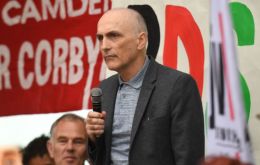
The UK's service sector stagnated last month, with new orders falling for the first time in two-and-a-half years, according to the IHS Markit/CIPS purchasing managers' index (PMI). The figures showed a reading of 50.1 in January lower than December's 51.2.
